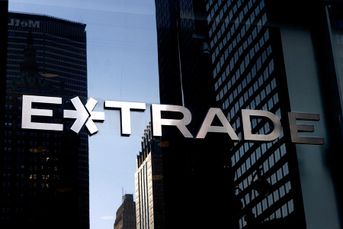Activists add tailwinds to closed-end funds
Persistent discounts have often caught the eye of activist investors
If you’re an adviser, you probably don’t want activists banging on your door. But if you’re a closed-end fund investor, activists are good thing indeed, and they’re making big changes in the industry.
Closed-end funds are the coelacanths of the mutual fund world — one of the earliest forms of mutual fund that is still wandering the planet. Like ETFs, they are portfolios of securities that trade on the stock exchanges. Unlike ETFs, they have no mechanism to keep their net asset value from deviating from their share price.
As a result, the fund’s share price often falls to a discount from the market value of the securities it holds. Templeton Global Income (GIM), for example, sold Tuesday for $6.99 a share, while its net asset value was $7.51 — a 10.9% discount.
Persistent discounts have often caught the eye of activist investors, such Saba Capital LP, who can urge the board of directors to convert a fund to a conventional open-ended fund, producing a windfall for investors. They can also prod fund managers to buy shares through a tender offer at the fund’s net asset value, reducing the discount.
The strategy has become so popular that the average weighted discount for closed-end funds has fallen to 3.5% today vs. 4.9% a year ago, according to Erik Herzfeld, president of Thomas J. Herzfeld Advisors Inc., which specializes in closed-end funds. The number of closed-end funds has fallen to 521 from 539 a year earlier.
“The big news in closed-end funds is that the activists are running wild,” Mr. Herzfeld said. “Funds have to keep the activists happy, and if they don’t, the activists will keep pushing.”
Saba Capital, for example, owns 17.5% of Clough Global Dividend & Income Fund (GLV), according to filings with the Securities and Exchange Commission. It also owns 14.3% of Clough Global Opportunities Fund (GLO) and 14.4% of Clough Global Equity Fund (GLQ).
The Clough closed-end funds reached agreement with Saba on July 10. The funds’ board of directors approved a discount managment plan, which includes a tender offer. The funds’ share prices jumped on the news, and discounts narrowed.
Bulldog Investors is another activist investor that’s prowling the closed-end world. It recently disclosed a 20.8% stake in the Korea Equity Fund (KEF), which is liquidating July 17. Karpus Investment Management, another closed-end activist investor, owns 23.1% of MFS Investment Grade Municipal Trust (CXH). The fund announced a tender offer for 15% of its shares at a price of 98% of the fund’s net asset value.
There are still plenty of closed-end funds selling at steep discounts. Boulder Growth & Income (BIF), for example, has 23.5% of its portfolio in Berkshire Hathaway (BRK), the company run by super investor Warren Buffett. The fund sells for a 15.6% discount — effectively allowing you to buy Berkshire Hathaway stock at more than a 15% discount. Who knows? Perhaps Mr. Buffett himself will become attracted to the bargains in the closed-end industry.
Learn more about reprints and licensing for this article.








